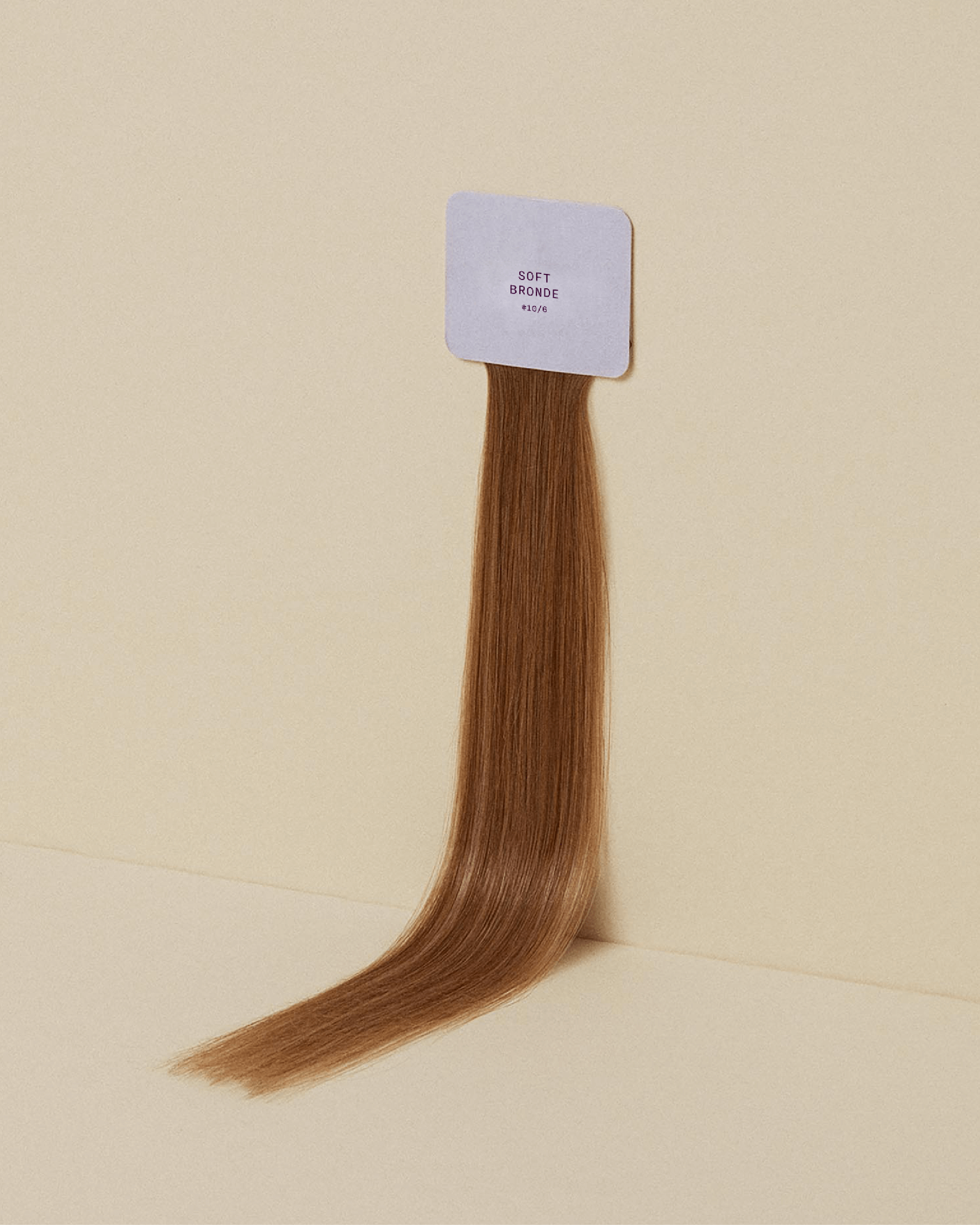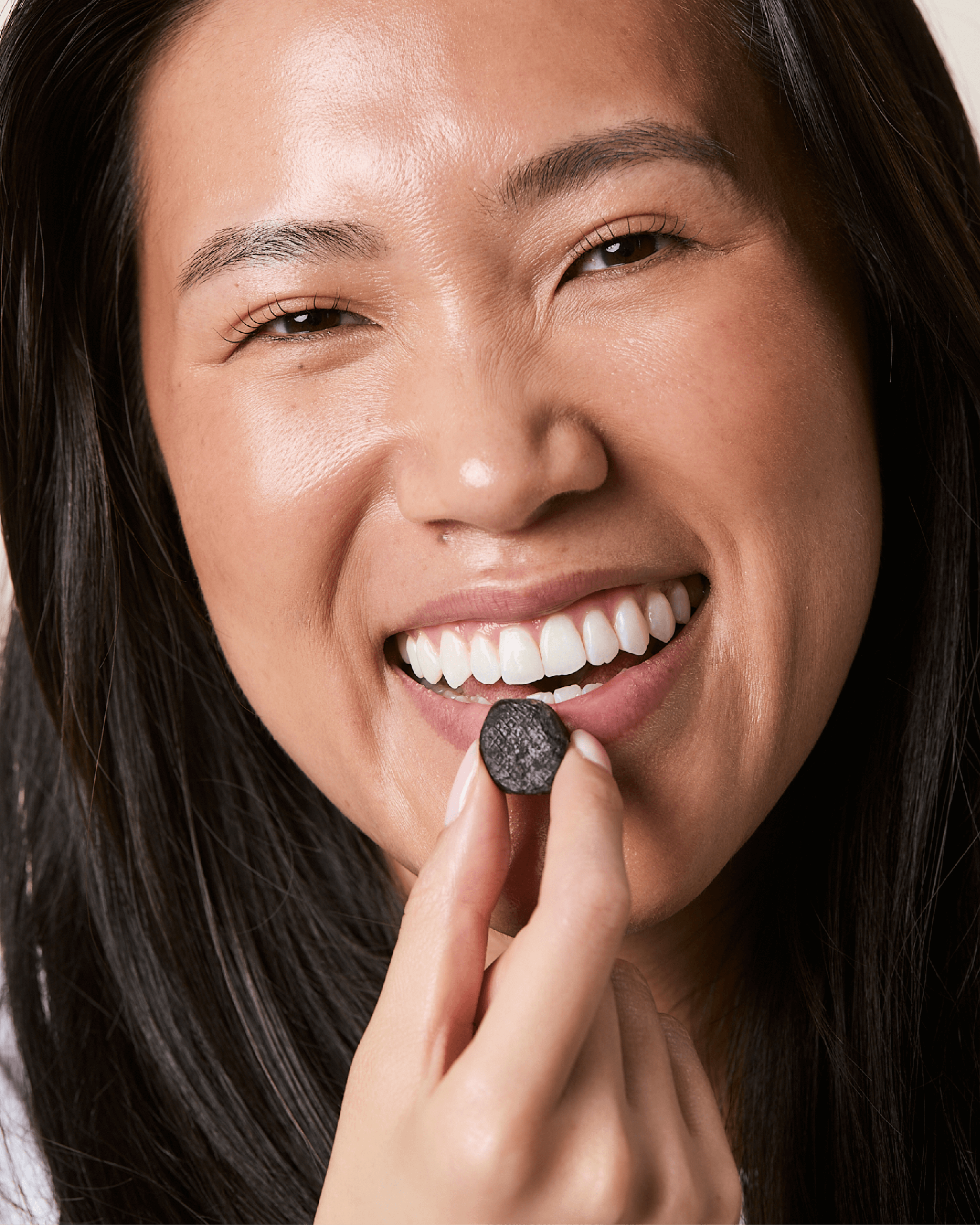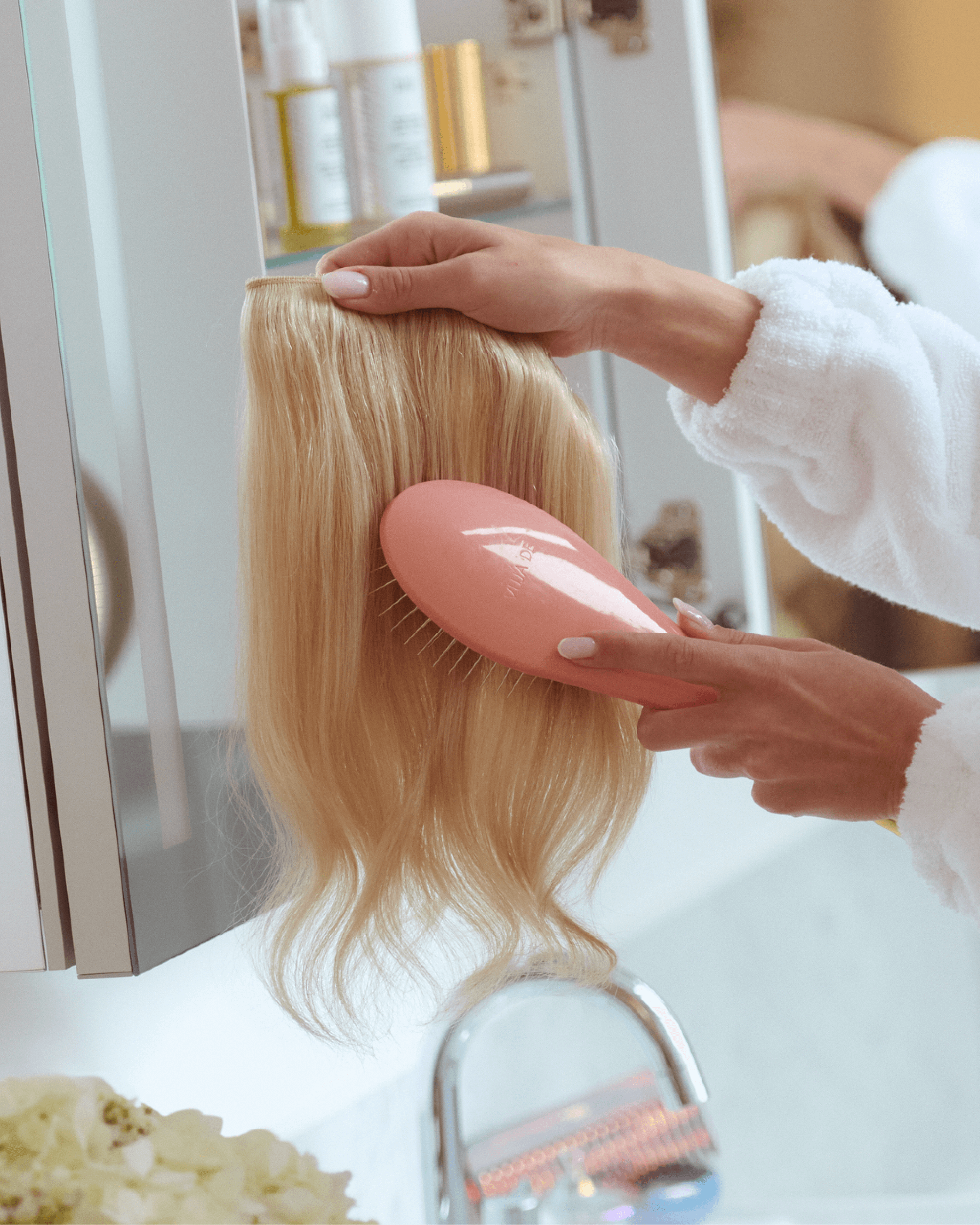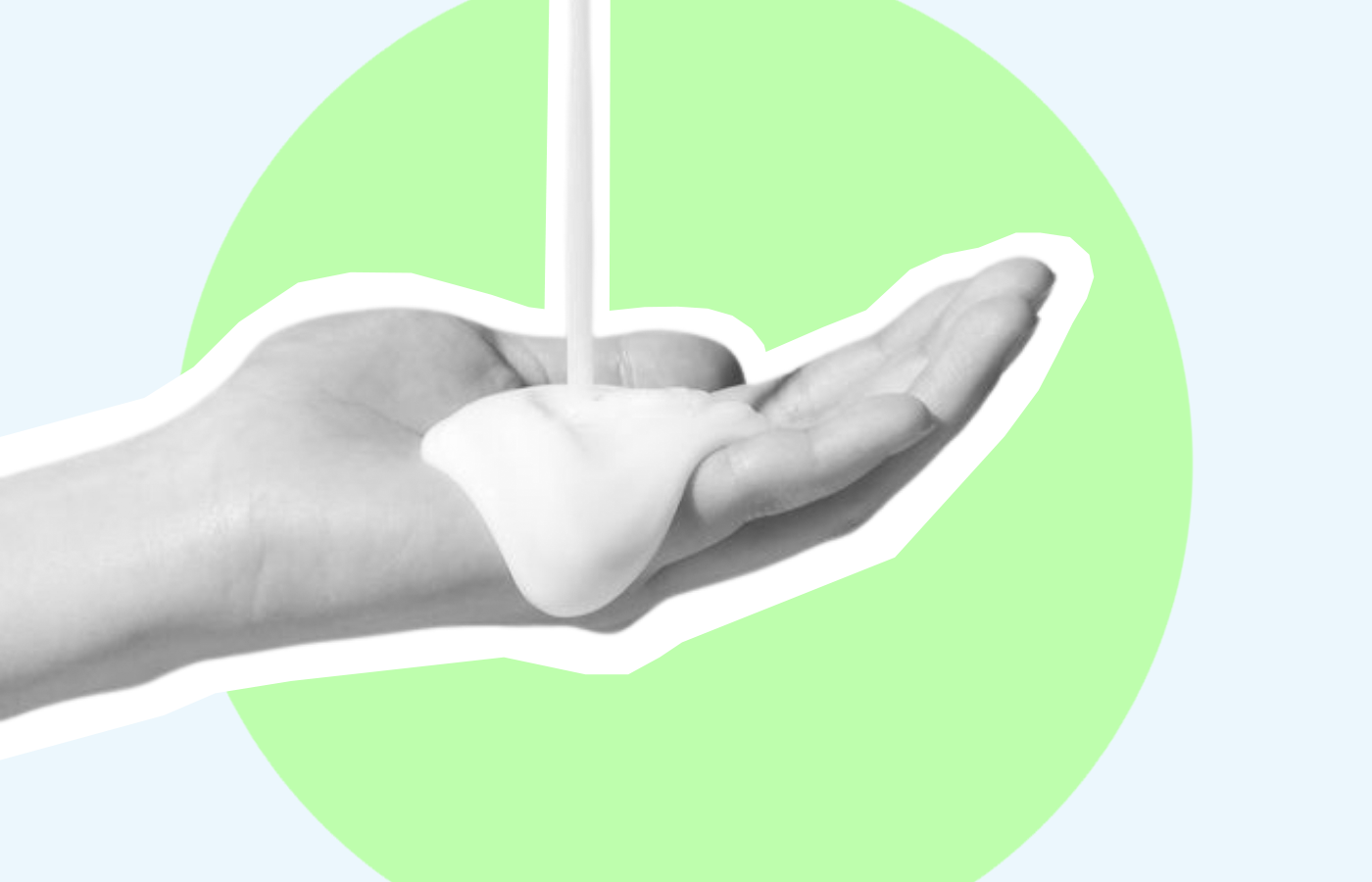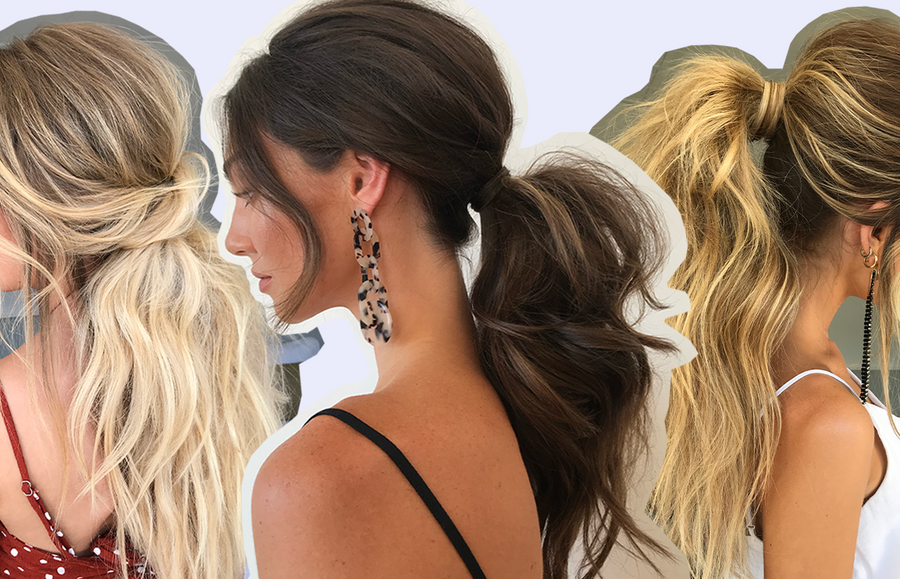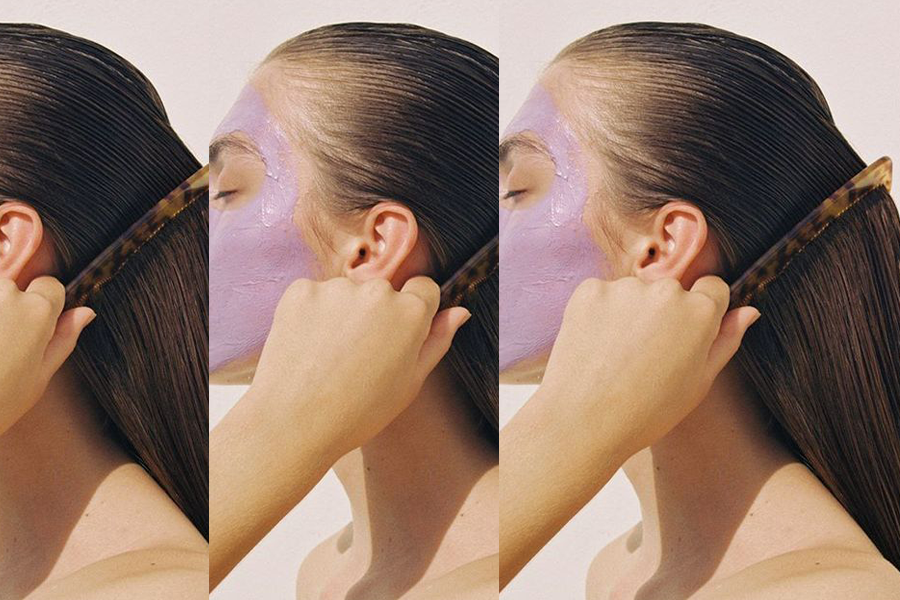Up there with fast food, the cosmetics industry has a lot to answer to when it comes to its ingredients. Considering most of us use beauty products every single day, those bottle labels become as important as the food we put in our bodies. Like, ever think about how many bottles of shampoo you’ve gone through in your life? Time to turn the bottle around and look for these bad ingredients in shampoo.
Read Next: Here's Why Your Scalp Is Sore Or Feels Like It's Burning
What ingredient in shampoo is bad for your hair?
If you buy shampoo like you buy wine—the prettiest label and maybe a couple words you understand—we’ll make you an ingredient connoisseur. Although there’s tons we won’t touch on here (yes, hate to say there’s a lot of toxic stuff out there), the top five you want to avoid are Parabens, alcohol, Triclosan, Dimethicone, and Polyethylene Glycol. Let's dive a little deeper into why these are bad ingredients in shampoo.
Read next: How to protect your hair while you sleep
Parabens
First things first, you should find a paraben free shampoo! As one of the most common. and most harmful, ingredients in shampoo, asking what are parabens is key to optimizing your haircare routine and becoming all around #health. So, what are parabens?
Basically, parabens are a preservative used to extend the lifespan of your shampoo while preventing the growth of mold and bacteria in the bottle. Parabens have a similar composition to hormones that are found in the human body, known as xenoestrogens, so you know they’re out to cause more than just a limp hair day.
We suggest buying a paraben free shampoo because these preservatives can pose a cancer risk, disrupt hormones, impact reproductive health, and cause skin irritation. For hair, they can lead to fast af colour fading, scalp dryness, and even hair loss!
When looking out for this ingredient, you won't likely see the word "parabens" listed. Instead, it will be combined with another phrase and end with the word parabens, such as methylparaben, propylparaben, and butylparaben.
Paraben Free Shampoo We Love

Alcohol
So, it turns out alcohol isn't just bad for late night texts, it’s also just as regrettable for strands. Another super common one of those bad ingredients in shampoo is alcohol and it can be one of the most drying baddies in the bunch.
Most alcohol in shampoo acts as a harsh, drying agent that can strip your hair of its protective scalp sebum and lead to scalp dryness and dandruff. It can also lead to dry skin issues because it compromises the natural balance of water/lipid balance!
However, not all alcohols are horrible for your hair, which is why it's important to pay attention to the label. For example, Stearyl alcohol and Ceteraly alcohol have been known to help retain the moisture in your hair and they aren't harmful like other alcohols. However, if you see any alcohol with the word "prop," such as propanol, isopropyl alcohol, or a label containing ethanol and denatured alcohol, you'll want to steer clear of this product.
Read Next: Think You've Heard it All? This is How to Wash Hair Properly
Triclosan
Another big bad preservative: Triclosan. Part preservative, part antibacterial, Triclosan used to be typically found in most antibacterial soaps until it was established as a carcinogen and was banned from being used in those types of soaps in 2016. However, many beauty products on the market today still use Triclosan! Including toothpaste, deodorants, makeup products, and yep, shampoo.
Triclosan shampoo doesn't boast any benefits for hair either except scalp inflammation, hair loss, and dryness. Proven to be an endocrine disruptor, Triclosan can also cause severe weight loss and under-controlled cellular reproduction—the latter means when your hair snaps, it’ll grow back slower!
While you'll typically be able to find the chemical under its regular name, Triclosan, you'll also want to look out for alternative names in Triclosan shampoo such as Cloxifenolum, Lexol 300, and Triclocarban.
Read Next: The Best Hair Extensions For Fine Hair
Dimethicone
Finding Dimethicone in shampoo is common as well. It's known as a silicone-based ingredient that coats your hair to protect against heat damage and keep in moisture. However, sadly, the bad outweighs the good. Dimethicone is bad for many reasons, including:- It can cause buildup at your roots over time
- It makes it difficult for other beneficial ingredients to work their way into your hair follicle because Dimethicone creates a barrier that can clog your pores
- Your hair can lose its natural shine because Dimethicone has been known to rob hair of the nutrients that flow to your follicles
When shopping for shampoos, try to avoid Dimethicone and names such as Stearoxy Dimethicone, Amodimethicone, and Behenoxy Dimethicone, which mean that some type of polymer was used in the shampoo.
Read Next: How To Hydrate Hair (By Hair Type)
Polyethylene Glycol
Polyethylene Glycol (PEG) is a humectant, which we’d normally be down for. Hooowever, this is a toxic ingredients roundup so here’s the tea: PEG has been classified as a “development toxicant” in states like California, which means that it can cause cancer and interfere with fetus development.
And TBH, it doesn't even really help your hair! PEG may keep some of your moisture in, but it’s also going to break down the resistance of your strands, so they become more prone to breakage and frizz, while also stripping your dye-job.
To avoid this uber drying toxic ingredient in shampoo, you might find PEG listed on your shampoo label as PEG-40, PEG-20, PPG-16, BIS-PEG, or any other title including the word "PEG."
